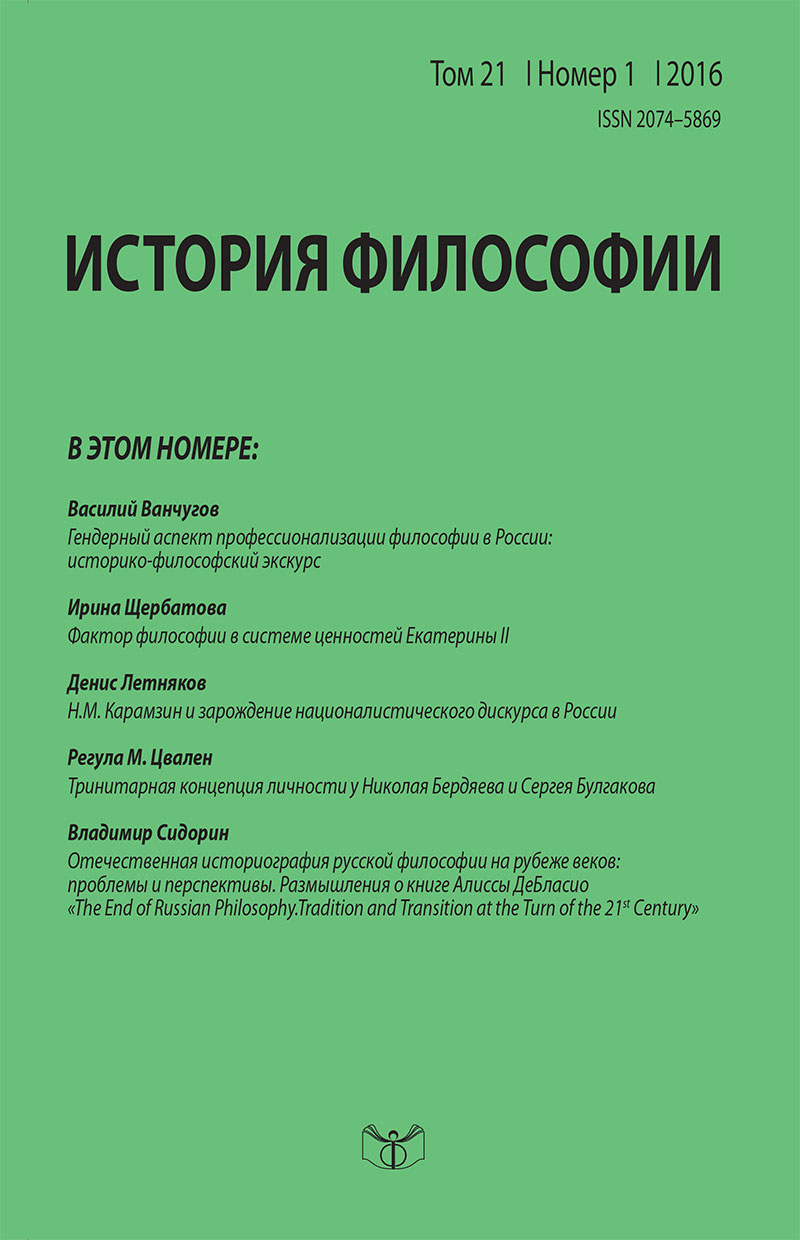Factor of Philosophy in the System of Values of Catherine II
Keywords:
Catherine the 2d, enlightenment, philosophy, humanism, concepts, morality, traditional society, retranslation meaningsAbstract
The article analyses how Russian thinkers and political figures of the 18th century who were passionately consuming the ideas of the Enlightenment actually understood them. The author argues
that the Russian society of the second half of the 18th century had a traditionalistic, a syncretic worldview, and was based on paternalism, submission to autocracy, the vision of the power as provided
and ensured by God, and the vision of the social structure as composed of estates. This condition
of the Russian society of the 18th century prevented the majority of Russian thinkers and political figures from grasping the ideals of the Enlightenment adequately and consistently. The author argues that Catherine the 2d
was however one of the few people who actually received those ideas
adequately and consistently. Yet, the outcomes of this reception were highly ambivalent on the level
of Catherine’s political decisions and moral ideals. The author claims that Catherine understood and
accepted some democratic and individualistic ideals of the Enlightenment, such as the aspiration to
create a new personality, the ideas of personal happiness, natural law, civic service, anticlericalism,
anthropocentrism, and social equality. Yet, at the same time, she systematically refused to put these
ideals in practice in Russia.

